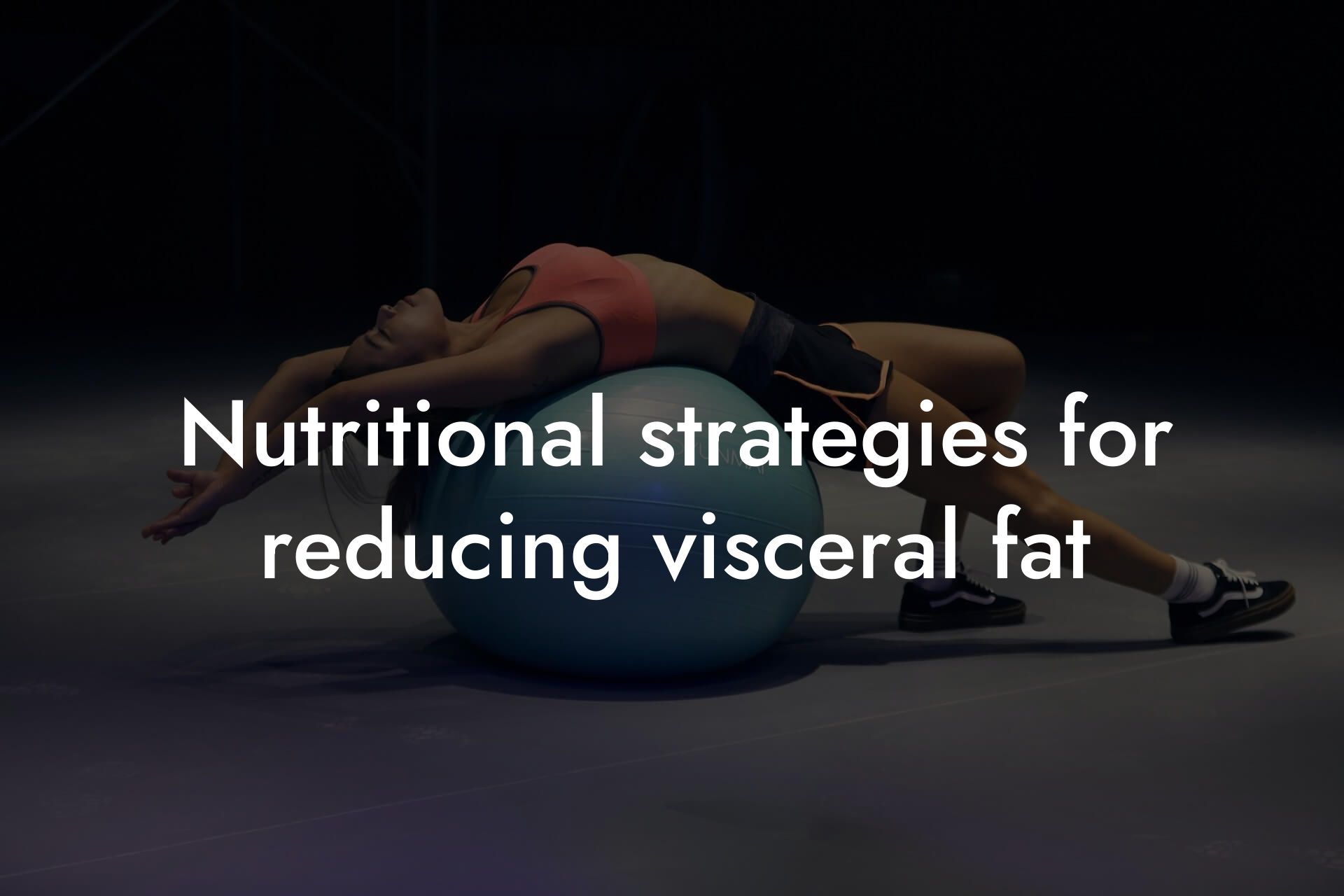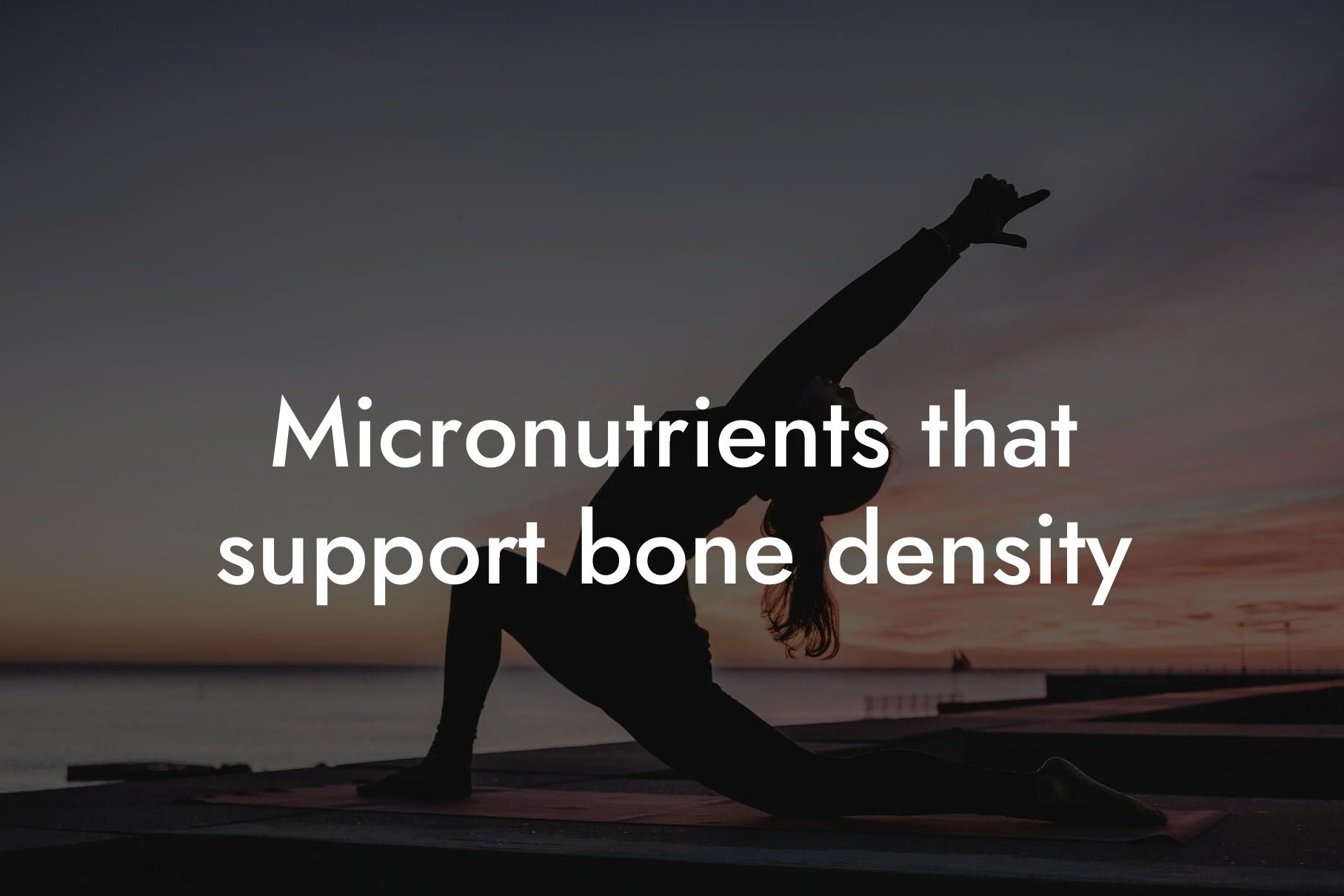As a high-earning professional, taking care of your physical appearance and overall health is crucial for maintaining peak performance in both your personal and professional life. One of the most effective ways to achieve this is by adopting a plant-based diet. But what exactly does a plant-based diet entail, and how does it impact your body composition? In this article, we'll delve into the world of plant-based diets and explore their effects on body fat, physique, and bone density.
Table of Contents
What is a Plant-Based Diet?
A plant-based diet is a type of diet that focuses on whole, minimally processed plant foods, with an emphasis on fruits, vegetables, whole grains, legumes, nuts, and seeds. This diet excludes or minimizes animal products such as meat, dairy, eggs, and even honey. There are various types of plant-based diets, including vegan, vegetarian, flexitarian, and reducetarian diets, each with its own level of animal product restriction.
Benefits of a Plant-Based Diet
Adopting a plant-based diet has numerous benefits for overall health and body composition. Some of the most significant advantages include:
Weight loss: Plant-based diets tend to be high in fiber and low in calories, making them an effective way to lose weight and maintain weight loss over time.
Improved insulin sensitivity: Plant-based diets are rich in fiber, vitamins, and minerals, which help regulate blood sugar levels and improve insulin sensitivity.
Reduced inflammation: Plant-based diets are rich in antioxidants and polyphenols, which help reduce inflammation and oxidative stress in the body.
Lower risk of chronic diseases: Plant-based diets have been shown to reduce the risk of chronic diseases such as heart disease, type 2 diabetes, and certain types of cancer.
Effects on Body Fat
One of the most significant effects of a plant-based diet on body composition is its impact on body fat. Plant-based diets tend to be high in fiber and low in calories, which helps promote weight loss and reduce body fat percentage. Studies have shown that individuals who follow a plant-based diet tend to have lower body fat percentages compared to those who follow a traditional Western diet.
In addition, plant-based diets are rich in healthy fats such as omega-3 fatty acids, which help reduce inflammation and improve overall health. These healthy fats also help regulate hunger and satiety, making it easier to maintain weight loss over time.
Effects on Physique
A plant-based diet can also have a significant impact on physique. By focusing on whole, minimally processed foods, individuals can expect to see improvements in muscle tone and definition. Plant-based diets are rich in protein, which is essential for building and repairing muscle tissue.
In addition, plant-based diets tend to be high in complex carbohydrates, which provide energy for workouts and help promote muscle growth and repair. This makes plant-based diets an excellent choice for athletes and fitness enthusiasts looking to improve their physique.
Effects on Bone Density
Bone density is a critical aspect of overall health, and a plant-based diet can have a significant impact on bone health. Plant-based diets are rich in calcium, vitamin D, and other essential nutrients that help promote bone health.
In addition, plant-based diets tend to be high in alkaline-forming foods, which help reduce acidity in the body and promote bone health. This is especially important for individuals at risk of osteoporosis or those who have a family history of bone-related disorders.
Common Misconceptions About Plant-Based Diets
One of the most common misconceptions about plant-based diets is that they are protein-deficient. However, this couldn't be further from the truth. Plant-based diets are rich in protein-rich foods such as legumes, beans, lentils, and tofu.
Another common misconception is that plant-based diets are lacking in essential nutrients such as vitamin B12 and omega-3 fatty acids. However, with proper planning and supplementation, it's easy to get all the necessary nutrients on a plant-based diet.
How to Get Started with a Plant-Based Diet
Getting started with a plant-based diet can seem daunting, but it's easier than you think. Here are some tips to help you get started:
Start by incorporating more plant-based meals into your diet. Try meatless Mondays or vegan Fridays to get started.
Experiment with new ingredients and recipes. Try new fruits, vegetables, and whole grains to add variety to your diet.
Consult with a registered dietitian or healthcare professional to ensure you're getting all the necessary nutrients.
Consider meal planning and prep to make the transition to a plant-based diet easier.
In conclusion, a plant-based diet is an excellent choice for high-earning professionals looking to improve their physical appearance and overall health. By focusing on whole, minimally processed plant foods, individuals can expect to see improvements in body fat percentage, physique, and bone density. With proper planning and supplementation, a plant-based diet can provide all the necessary nutrients for optimal health and performance.
At Tano Performance Group, we understand the importance of optimal body composition for peak performance. Our DEXA machine provides a comprehensive body assessment, giving you all the information you need to take your business to the next level. Contact us today to learn more about our services and how we can help you achieve your health and fitness goals.
Frequently Asked Questions
What is a plant-based diet, and how does it differ from a vegan diet?
A plant-based diet focuses on whole, minimally processed plant foods, with an emphasis on fruits, vegetables, whole grains, and legumes. While a vegan diet excludes all animal products, including eggs, dairy, and even honey, a plant-based diet may include small amounts of animal products. However, the primary focus remains on plant-based foods.
What are the benefits of a plant-based diet for body composition?
A plant-based diet has been shown to promote weight loss, improve body fat percentage, and increase lean muscle mass. This is due to the high fiber and water content of plant-based foods, which can help with satiety and reduce calorie intake. Additionally, plant-based diets tend to be lower in saturated fat and higher in protein, which can support muscle growth and maintenance.
Will I get enough protein on a plant-based diet?
Yes, it is possible to get enough protein on a plant-based diet. Legumes, beans, lentils, tofu, tempeh, and seitan are all high in protein. Additionally, whole grains, nuts, and seeds provide a significant amount of protein. It's essential to consume a variety of plant-based protein sources to ensure you're getting all the essential amino acids your body needs.
What are some high-protein plant-based foods?
Some high-protein plant-based foods include lentils (18g of protein per 1 cup cooked), chickpeas (15g of protein per 1 cup cooked), black beans (15g of protein per 1 cup cooked), tofu (20g of protein per 3 oz serving), tempeh (15g of protein per 3 oz serving), and seitan (21g of protein per 3 oz serving).
Can I build muscle on a plant-based diet?
Yes, it is possible to build muscle on a plant-based diet. Plant-based protein sources can provide the necessary building blocks for muscle growth and repair. Additionally, a plant-based diet tends to be higher in fiber, vitamins, and minerals, which can support overall health and muscle function. However, it's essential to consume adequate protein and calories to support muscle growth.
Will I lose muscle mass on a plant-based diet?
No, a plant-based diet does not inherently lead to muscle loss. In fact, a well-planned plant-based diet can help promote muscle growth and maintenance. However, if you're not consuming enough protein or calories, you may experience muscle loss. It's essential to ensure you're getting enough protein and calories to support your muscle mass.
How does a plant-based diet affect bone density?
A plant-based diet can have a positive effect on bone density. Plant-based foods tend to be higher in calcium, vitamin K, and other nutrients that support bone health. Additionally, a plant-based diet tends to be lower in animal protein, which can help reduce calcium excretion and promote bone health.
What are some plant-based sources of calcium?
Some plant-based sources of calcium include fortified plant-based milk, dark leafy greens like kale and broccoli, tofu, almonds, and sesame seeds. It's essential to consume a variety of calcium-rich plant-based foods to support bone health.
Can a plant-based diet help with weight loss?
Yes, a plant-based diet can help with weight loss. Plant-based foods tend to be lower in calories and higher in fiber, which can help with satiety and reduce calorie intake. Additionally, plant-based diets tend to be lower in saturated fat and higher in protein, which can support weight loss.
How does a plant-based diet affect body fat percentage?
A plant-based diet can help reduce body fat percentage. Plant-based foods tend to be lower in saturated fat and higher in fiber, which can help reduce calorie intake and promote weight loss. Additionally, plant-based diets tend to be higher in protein, which can support muscle growth and maintenance, leading to a higher metabolism and reduced body fat percentage.
What are some common mistakes people make when transitioning to a plant-based diet?
Some common mistakes people make when transitioning to a plant-based diet include not consuming enough protein, not getting enough vitamin B12, and not eating a variety of plant-based foods. It's essential to plan your diet carefully and consult with a healthcare professional or registered dietitian to ensure you're getting all the necessary nutrients.
How can I ensure I'm getting enough vitamin B12 on a plant-based diet?
Vitamin B12 is found primarily in animal products, so it's essential to consume plant-based sources of vitamin B12 or take a supplement. Some plant-based sources of vitamin B12 include fortified plant-based milk, cereals, and meat substitutes. You can also take a vitamin B12 supplement or consult with a healthcare professional or registered dietitian for personalized advice.
Can I get enough omega-3 fatty acids on a plant-based diet?
Yes, it is possible to get enough omega-3 fatty acids on a plant-based diet. Plant-based sources of omega-3 fatty acids include flaxseeds, chia seeds, walnuts, and canola oil. Additionally, you can take an algal oil supplement, which is derived from algae and is a vegan source of omega-3 fatty acids.
How does a plant-based diet affect athletic performance?
A plant-based diet can have a positive effect on athletic performance. Plant-based foods tend to be higher in antioxidants, vitamins, and minerals, which can help reduce inflammation and support overall health. Additionally, a plant-based diet tends to be lower in saturated fat and higher in protein, which can support muscle growth and maintenance.
Can I get enough iron on a plant-based diet?
Yes, it is possible to get enough iron on a plant-based diet. Plant-based sources of iron include beans, lentils, tofu, tempeh, and dark leafy greens like spinach and kale. Vitamin C can help increase iron absorption, so it's essential to consume foods high in vitamin C, such as citrus fruits and bell peppers, along with iron-rich plant-based foods.
How does a plant-based diet affect digestion?
A plant-based diet can have a positive effect on digestion. Plant-based foods tend to be higher in fiber, which can help promote regular bowel movements and prevent constipation. Additionally, a plant-based diet tends to be lower in saturated fat and higher in antioxidants, which can help reduce inflammation and support overall gut health.
Can I eat too much fiber on a plant-based diet?
Yes, it is possible to eat too much fiber on a plant-based diet. While fiber is essential for digestive health, consuming too much fiber can cause bloating, gas, and abdominal discomfort. It's essential to increase your fiber intake gradually and drink plenty of water to help your body adjust.
How does a plant-based diet affect blood sugar control?
A plant-based diet can help regulate blood sugar control. Plant-based foods tend to be lower on the glycemic index, which means they can help regulate blood sugar levels and prevent spikes in insulin levels. Additionally, a plant-based diet tends to be higher in fiber, which can help slow down the absorption of sugar and promote satiety.
Can a plant-based diet help with inflammation?
Yes, a plant-based diet can help reduce inflammation. Plant-based foods tend to be higher in antioxidants, vitamins, and minerals, which can help reduce oxidative stress and inflammation. Additionally, a plant-based diet tends to be lower in saturated fat and higher in omega-3 fatty acids, which can help reduce inflammation and promote overall health.
How does a plant-based diet affect skin health?
A plant-based diet can have a positive effect on skin health. Plant-based foods tend to be higher in antioxidants, vitamins, and minerals, which can help reduce oxidative stress and inflammation, leading to healthier, more radiant skin. Additionally, a plant-based diet tends to be lower in saturated fat and higher in omega-3 fatty acids, which can help reduce inflammation and promote overall skin health.
Can a plant-based diet help with hair growth?
Yes, a plant-based diet can help promote hair growth. Plant-based foods tend to be higher in vitamins, minerals, and antioxidants, which can help promote hair growth and reduce hair loss. Additionally, a plant-based diet tends to be lower in saturated fat and higher in omega-3 fatty acids, which can help reduce inflammation and promote overall hair health.
How does a plant-based diet affect nail health?
A plant-based diet can have a positive effect on nail health. Plant-based foods tend to be higher in vitamins, minerals, and antioxidants, which can help promote nail growth and strength. Additionally, a plant-based diet tends to be lower in saturated fat and higher in omega-3 fatty acids, which can help reduce inflammation and promote overall nail health.
Can a plant-based diet help with stress and anxiety?
Yes, a plant-based diet can help reduce stress and anxiety. Plant-based foods tend to be higher in antioxidants, vitamins, and minerals, which can help reduce oxidative stress and inflammation, leading to improved mental health. Additionally, a plant-based diet tends to be lower in saturated fat and higher in omega-3 fatty acids, which can help reduce inflammation and promote overall mental health.
How does a plant-based diet affect sleep quality?
A plant-based diet can help improve sleep quality. Plant-based foods tend to be higher in antioxidants, vitamins, and minerals, which can help reduce oxidative stress and inflammation, leading to improved sleep quality. Additionally, a plant-based diet tends to be lower in saturated fat and higher in omega-3 fatty acids, which can help reduce inflammation and promote overall sleep quality.
Here are some related articles you might love...
- The role of antioxidants in body composition
- Nutritional strategies for reducing visceral fat
- Micronutrients that support bone density
- Omega-3 fatty acids and their impact on body fat
- Carb cycling for fat loss and muscle gain
- The impact of alcohol on body composition
- Nutritional timing for optimal muscle growth
- Probiotics and gut health: Their role in body composition
- The benefits of collagen for bone and muscle health
Zak Faulkner
Zak Faulkner is a leading authority in the realm of physical health and body composition analysis, with over 15 years of experience helping professionals optimise their fitness and well-being. As one the experts behind Tano Performance Group, Zak has dedicated his career to providing in-depth, science-backed insights that empower clients to elevate their physical performance and overall health.
With extensive knowledge of DEXA technology, Zak specializes in delivering comprehensive body assessments that offer precise data on body fat, muscle mass, bone density, and overall physique. His expertise enables individuals to make informed decisions and achieve their fitness goals with accuracy and confidence. Zak’s approach is rooted in a deep understanding of human physiology, combined with a passion for helping clients unlock their full potential through personalised strategies.
Over the years, Zak has earned a reputation for his commitment to excellence, precision, and client-focused service. His guidance is trusted by top professionals who demand the best when it comes to their health. Whether advising on fitness programs, nutritional strategies, or long-term wellness plans, Zak Faulkner’s insights are a valuable resource for anyone serious about taking their health and fitness to the next level.
At Tano Performance Group, Zak continues to lead our Content Team revolutionising how professionals approach their physical health, offering unparalleled expertise that drives real results.




